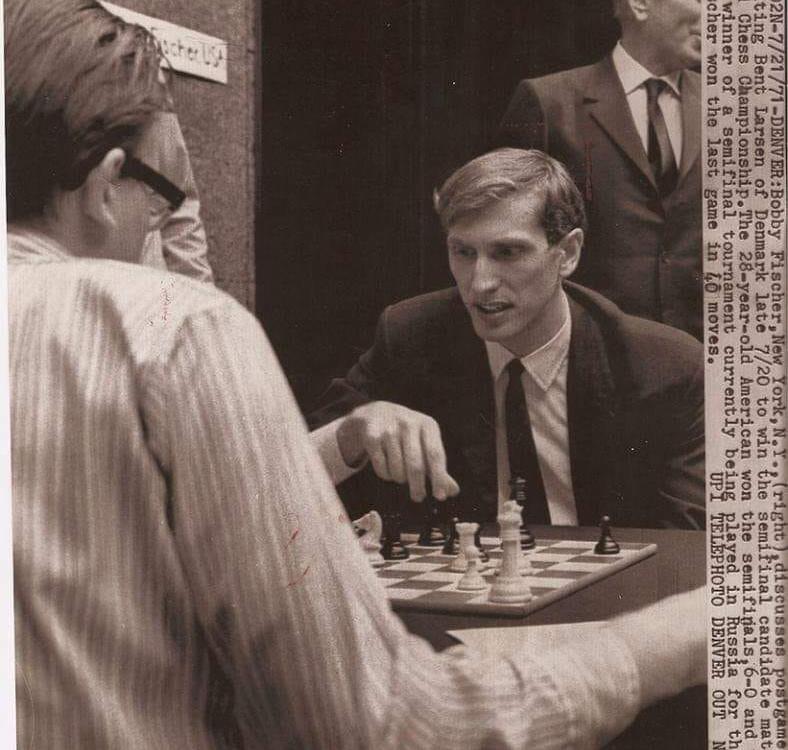
Why Larsen Lost
The following text is from my newsletter. You can subscribe to it here, using the yellow box.
The match Fischer-Larsen in Denver 1971 is one of the most famous ones in chess history. It had never happened before, and it will never happen again, that in a match between two top-3 players (Spassky, Fischer and Larsen were top three players in the world then) one beats the other six (!) times in a row and not just anywhere, but in a semi-final Candidates match.
The reasons for such a result come from both sides - Fischer was playing almost perfect chess and Larsen had problems. Larsen wrote about them after the match, claiming the historically high temperatures in Denver affected him, leading to high blood pressure, thus making it difficult for him to play on his usual level.
However, there is one aspect that I haven't seen mentioned when it comes to this match. Larsen indirectly acknowledges it, when he says that in the last game of the match he saw that he could force a draw by a perpetual check, but decided to continue anyway. It is his psychological attitude as a player.
Larsen has always been an uncompromising player, similar to Fischer. He played to win, full stop. And here comes the problem, that I have also suffered from.
When the player is in great shape this attitude brings great results, like the ones Larsen had at the end of the 60s and beginning of the 70s. But when the player is out of shape and if he is not aware of it and does not adapt to the situation, this attutude leads to disasters.
Lack of flexibility in the player's mindset and behaviour will lead him to continue pursuing maximum goals, pushing in every game and playing for a win. However, coupled with the bad form this will mean that the opportunities that will arise as a result of that approach will more likely be used by the opponents than the player himself. If it continues, this can easily lead to losing streaks that the player would like to break with a win, leading to more losses - the match in Denver is the perfect example.
Looking at the games from the match Fischer-Larsen I see exactly this. Larsen could have drawn many games in that match, but every time he spurned that possibility in search for more, often at the expense of objectivity. As a result he was severely punished by a player who took advantage of all his mistakes with machine-like precision.
This has happened to me way too often. I refused to acknowledge the need for a more sensible and less-maximalistic approach, pushing at all cost, for which I was punished. Part of the problem was that I didn't really know to play and approach the game in another way, how to be more pragmatic, how to sometimes play for a draw and take the foot off the pedal. I was punished so I could learn.
To be honest, I am not sure if I learned. I understood the problem and what needed to be done, by becoming more aware of my state of mind, but the actual implementation during the preparation process and the game was much more difficult to make. The difficulty also lay in my opening repertoire, which was suited to play for win with both colours, but less suited for more controlled play.
I am not sure what is easier to change - the mental attitude or the opening repertoire. They are connected and I think the start should come from the mental attitude. Accept that "draw is good" and the corresponding openings should follow.
An additional aspect is the attitude during the game. This is even more difficult to control as after many years of drilling the mind to search for sharp and demanding moves it requires a very difficult to achieve self-control to train the mind to search for solid and safe moves.
As I often like to say, self-awareness is the key and the process is simple (on the surface): understand the situation and do what is necessary, in this case to limit the damage. But if Larsen couldn't do it, then perhaps we shouldn't be too hard on ourselves when we cannot either.
